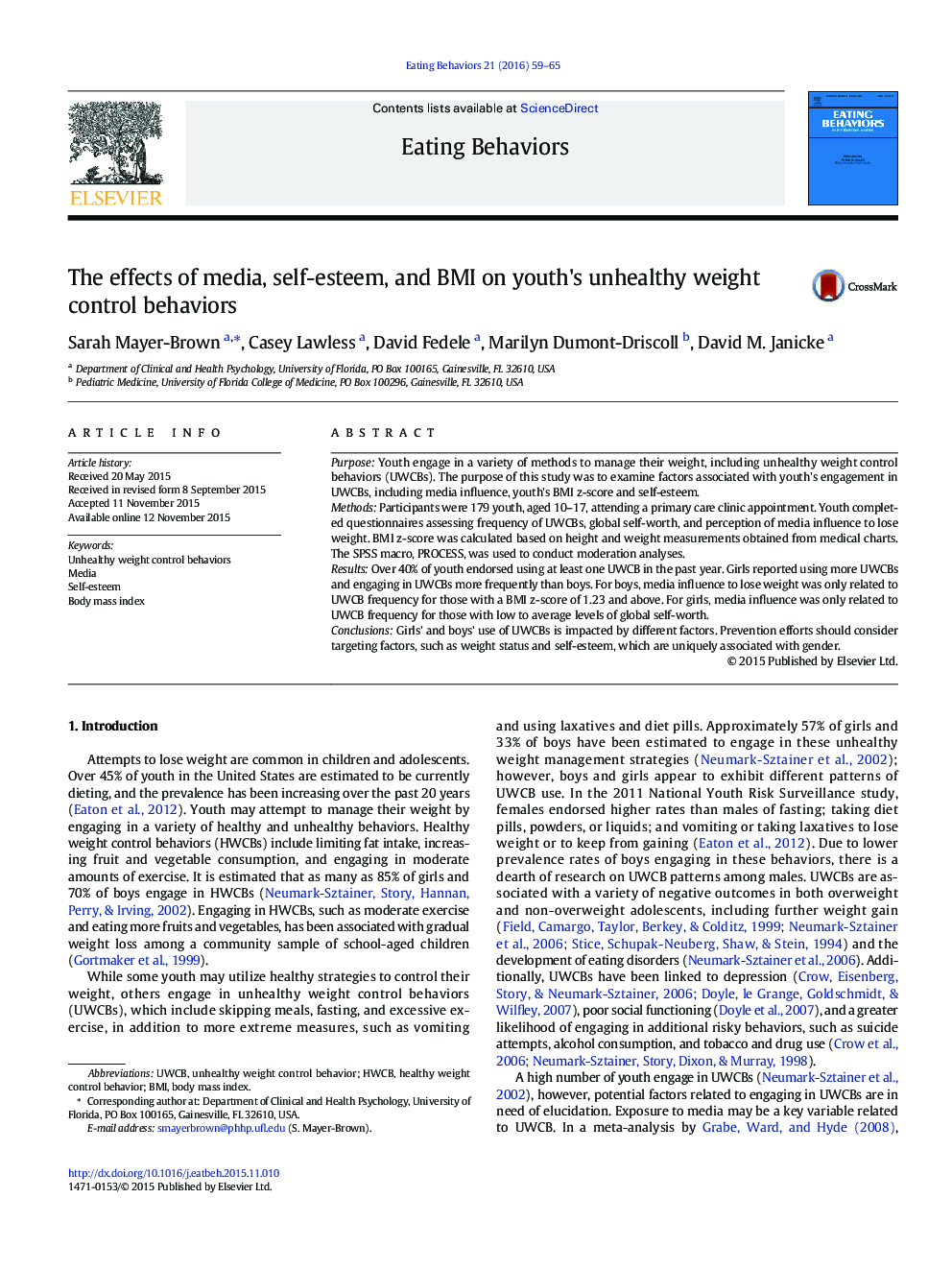| Article ID | Journal | Published Year | Pages | File Type |
|---|---|---|---|---|
| 906231 | Eating Behaviors | 2016 | 7 Pages |
•We examined factors influencing youth's unhealthy weight control behaviors (UWCBs).•About 41% of youth reported using UWCBs in the past year.•BMI moderated the media exposure to UWCB relationship in males.•Global self-worth moderated the media exposure to UWCB relationship in females.
PurposeYouth engage in a variety of methods to manage their weight, including unhealthy weight control behaviors (UWCBs). The purpose of this study was to examine factors associated with youth's engagement in UWCBs, including media influence, youth's BMI z-score and self-esteem.MethodsParticipants were 179 youth, aged 10–17, attending a primary care clinic appointment. Youth completed questionnaires assessing frequency of UWCBs, global self-worth, and perception of media influence to lose weight. BMI z-score was calculated based on height and weight measurements obtained from medical charts. The SPSS macro, PROCESS, was used to conduct moderation analyses.ResultsOver 40% of youth endorsed using at least one UWCB in the past year. Girls reported using more UWCBs and engaging in UWCBs more frequently than boys. For boys, media influence to lose weight was only related to UWCB frequency for those with a BMI z-score of 1.23 and above. For girls, media influence was only related to UWCB frequency for those with low to average levels of global self-worth.ConclusionsGirls' and boys' use of UWCBs is impacted by different factors. Prevention efforts should consider targeting factors, such as weight status and self-esteem, which are uniquely associated with gender.
